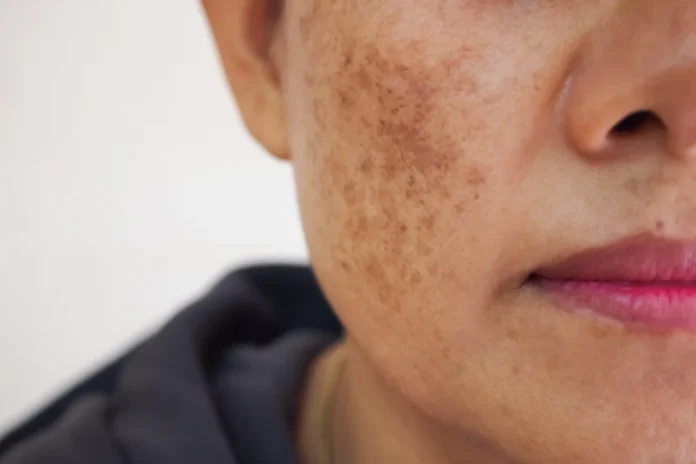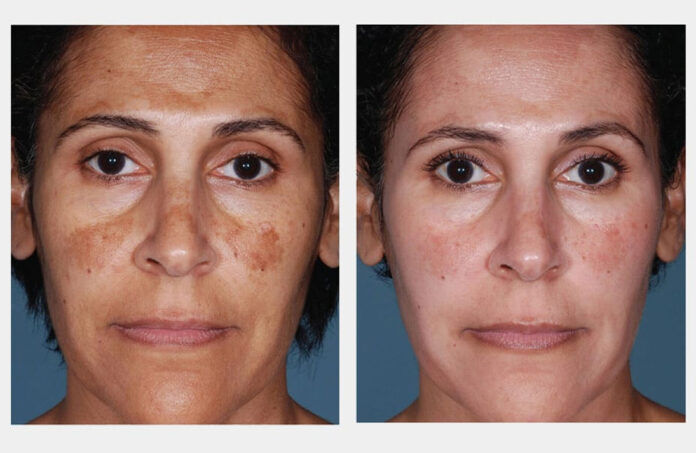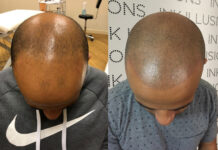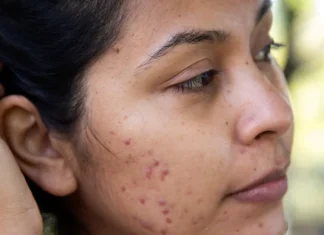
Hyperpigmentation treatment can be defined as a tailored cosmetic treatment to reduce or eliminate darkened patches on the skin. The goal of these treatments is to fade and remove hyperpigmented areas.
A good hyperpigmentation treatment like OZ Dewy, for example, can also help you restore a more even skin tone to boost your confidence and improve your skin appearance. See how OZ Dewy works on this page: https://ozaesthetic.com/treatment/oz-dewy-tx/.
Now, hyperpigmentation isn’t generally a cause for concern as it isn’t usually indicative of a serious medical condition or harmful on its own. Because of that, many people who are curious about hyperpigmentation treatment in Singapore frequently ask; are hyperpigmentation treatments necessary?
On this page, we will discuss the different instances when a hyperpigmentation treatment may be necessary or warranted. We will also explain how to choose the best hyperpigmentation treatment in Singapore.
So, Does Hyperpigmentation need to be treated?

Hyperpigmentation occurs as a result of an uptick of melanin in your system. Since melanin is the natural pigment responsible for the color of your hair, skin and eye, many people ask; does hyperpigmentation need to be treated? Here’s a simple answer;
Usually, hyperpigmentation is harmless. So, hyperpigmentation does not need to be treated. However, if the hyperpigmentation is a result of a skin condition that is causing uneven skin tone, it may need to be treated. Hyperpigmentation may also need to be treated if it is affecting how you feel about yourself around people.
Below are six other reasons or instances when hyperpigmentation treatment may be warranted;
- If it is due to Post-Inflammatory Hyperpigmentation (PIH): PIH occurs after skin inflammation from acne, cuts, or burns. It often leaves behind darkened patches which may give your confidence a hit. Hyperpigmentation treatment for PIH targets these marks and helps to fade them faster. You may be prescribed topical creams formulated with ingredients like hydroquinone, retinoids, or azelaic acid to help lighten these areas. You may also be recommended procedures like chemical peels or laser therapy to reduce discoloration. If you’re seeing a specialist for hyperpigmentation treatment in Singapore to help with PIH, the treatment will not only improve your skin appearance. It will also boost your confidence, especially if these marks occur prominently on the face.
- If it’s Caused by Melasma: Melasma causes symmetrical patches on the face. It can occur as a result of hormonal changes, sun exposure, or even genetics. The treatment for this condition involves topical medications like hydroquinone, corticosteroids, or kojic acid to lighten these dark spots. Laser therapy or chemical peels may also be recommended but for severe cases. An effective treatment will not only help you regain a more even skin tone. It will also help you manage the emotional impact of visible facial discoloration.
- Sun Damage Pigmentation: Prolonged sun exposure may lead to sunspots or solar lentigines which may leave you with uneven pigmentation. For hyperpigmentation treatment in Singapore, the focus will be on fading these spots with topical treatments which may also be formulated with retinoids, alpha hydroxy acids (AHAs), or vitamin C. Your cosmetic doctor or dermatologist may recommend Intense Pulsed Light (IPL) therapy or laser treatments if you’re dealing with large areas affected by sun damage. Treating sun-induced hyperpigmentation not only improves skin aesthetics. It could also be what you need to reduce the risk of further sun-related skin issues like skin cancer, etc.
- Pigmentation due to Hormonal Changes: Pregnancy or hormonal fluctuations can sometimes cause hyperpigmentation known as chloasma or the “mask of pregnancy.” Topical creams, particularly those safe for use during pregnancy, along with sun protection, are commonly recommended. Postpartum, these marks often fade. However, they may require additional treatments like chemical peels or laser therapy for complete resolution. Treating hormonal hyperpigmentation can help you feel more comfortable and confident during pregnancy and after childbirth.
- Age Spots: These are also called liver spots or lentigines. They’re dark spots which develop due to aging and sun exposure. Treatments include topical creams containing hydroquinone, tretinoin, or glycolic acid. Procedures like cryotherapy or laser therapy can be used to effectively target these spots and get rid of them. Addressing age spots enhances skin appearance for a more youthful look and improved self-esteem.
- Medication-Induced Hyperpigmentation: Certain medications, like some antibiotics, hormone treatments, or chemotherapy drugs, can cause hyperpigmentation as a side effect. Discontinuing the medication might not always be feasible. So, treatment may be recommended to focus on managing and lightening these darkened areas with topical treatments or laser therapy. Treating medication-induced hyperpigmentation is essential to alleviate the visibility of these side effects. They can also help you feel more at ease with your skin even as you proceed with the treatments.
- Genetic or Congenital Conditions: Conditions like freckles, birthmarks, or genetic predisposition to certain pigment disorders may warrant treatment for cosmetic reasons. Laser therapy, cryotherapy, or topical treatments are options to manage and lighten these areas.
How do you choose the Best Pigmentation Treatment?

Not every option for hyperpigmentation treatment in Singapore will deliver the best results for you. If you’re considering treatment for hyperpigmentation, your best bet will be to see a skilled cosmetic doctor or dermatologist for a thorough assessment and a tailored treatment plan. That said, here are three tips for choosing the best pigmentation treatment;
- Consult a Dermatologist: It can be tempting to go all out on your own and try different OTC treatments for hyperpigmentation. The problem with this approach is that there is a risk of going with a treatment option that may fail to address the exact type of pigmentation condition you’re dealing with or simply, exacerbate it. Dermatologists and board-certified cosmetic doctors understand and can help you diagnose specific skin concerns as well as recommend tailored treatments. So, a consultation with a dermatologist or board-certified cosmetic doctor will ensure that you can access precise diagnoses and appropriate therapies.
- Consider Skin Sensitivity: You will also want to assess your skin’s sensitivity and potential reactions to different treatments. Some procedures or products may trigger adverse effects. This is especially true for individuals with medium to dark skin tones. So, a thorough assessment of your skin’s response will be key in selecting treatments that are effective without causing further hyperpigmentation or irritation.
- Review Treatment Options: Explore various treatment methods available for hyperpigmentation. The focus should be on their efficacy and safety. Opt for treatments specifically formulated for your skin type and the severity of pigmentation. Acid-based treatments and topical creams can often yield positive results for milder cases. For persistent or deeper pigmentation issues, more advanced procedures like chemical peels or light therapy may be recommended.
It’s a Wrap!

Hyperpigmentation treatment is necessary if you’re dealing with a pigmentation condition that is impacting your self-confidence or is a result of another condition or a medication you’re on. To ensure targeted treatment for the best outcomes, consult with a specialist for a thorough assessment and a tailored program.
To learn more about specialized treatments like OZ Dewy and other tailored cosmetic treatments for hyperpigmentation, call or visit OZ Aesthetics to schedule your appointment.















![16 Best Men’s Loafers 2023 [ BEST PREMIUM BRANDS ] best mens loafers](https://www.menshairstylesx.com/wp-content/uploads/2019/10/best-mens-loafers-1-100x70.jpg)
